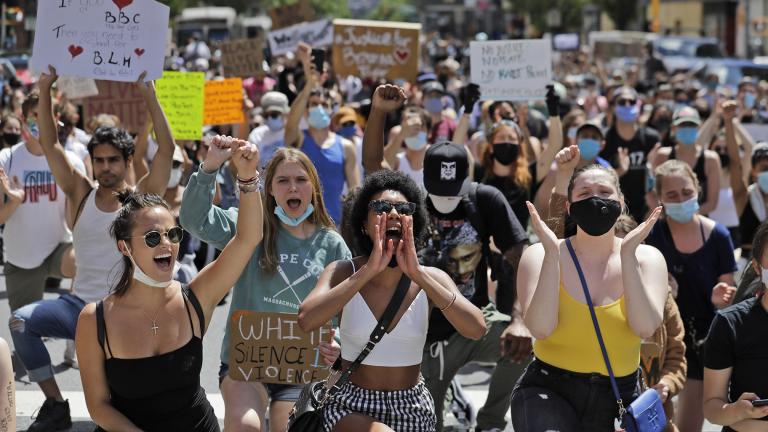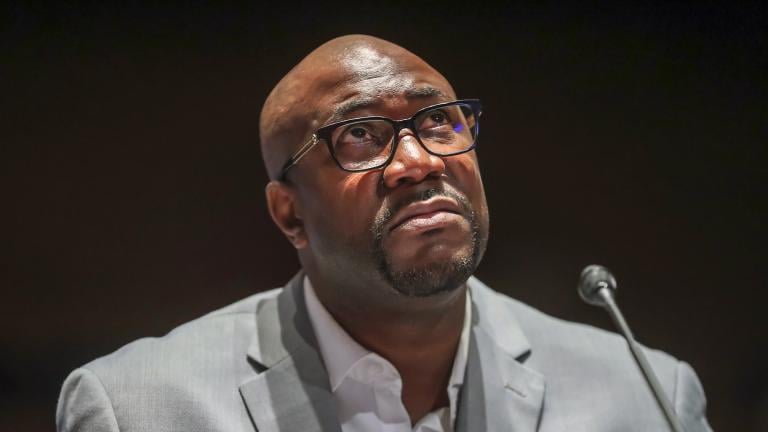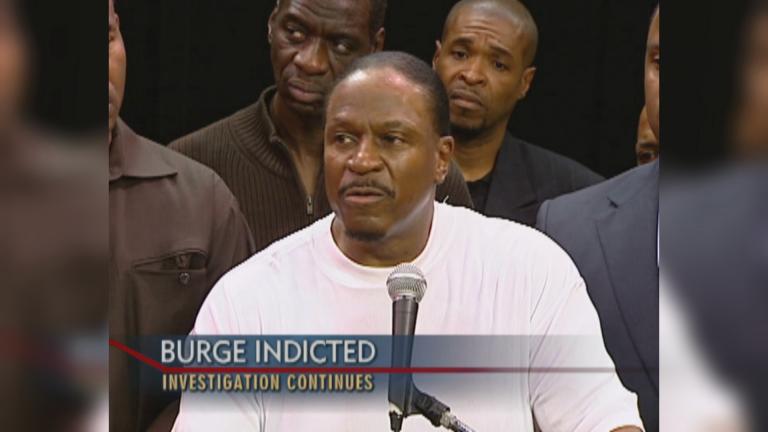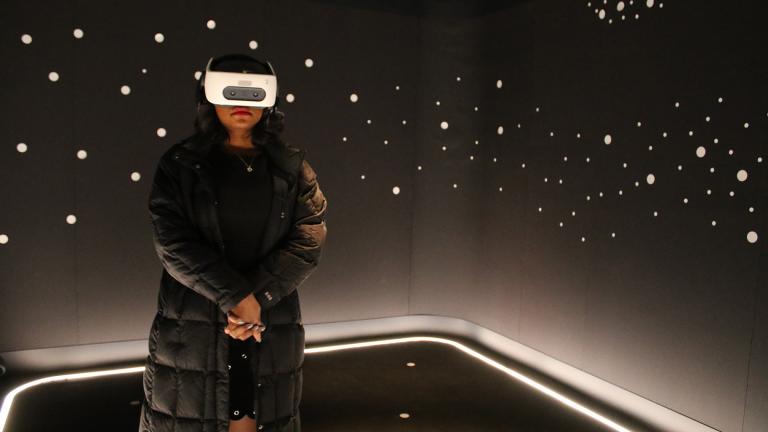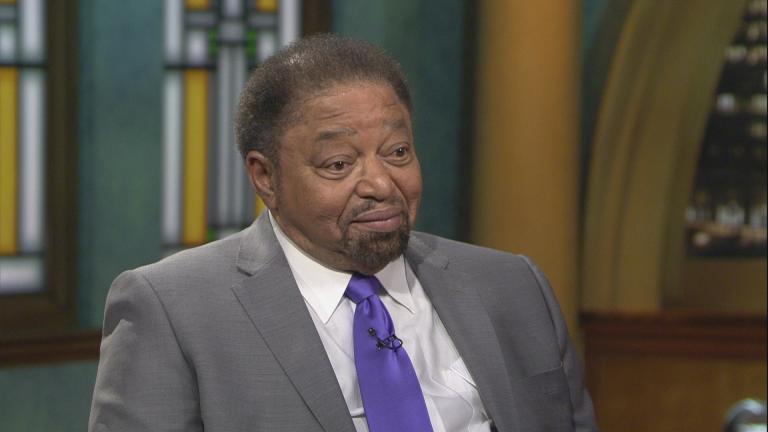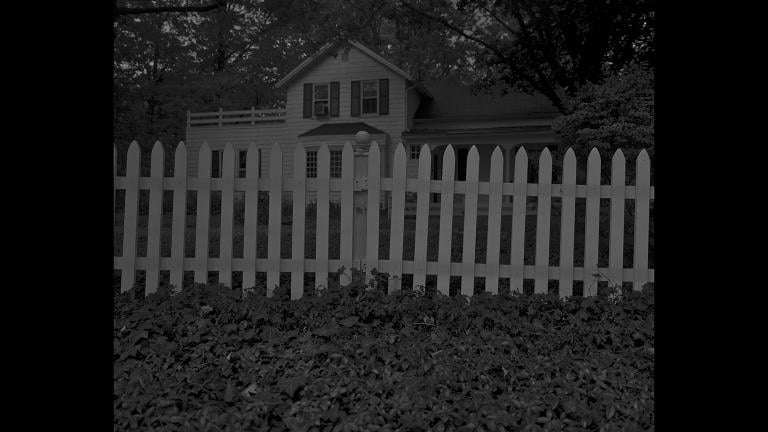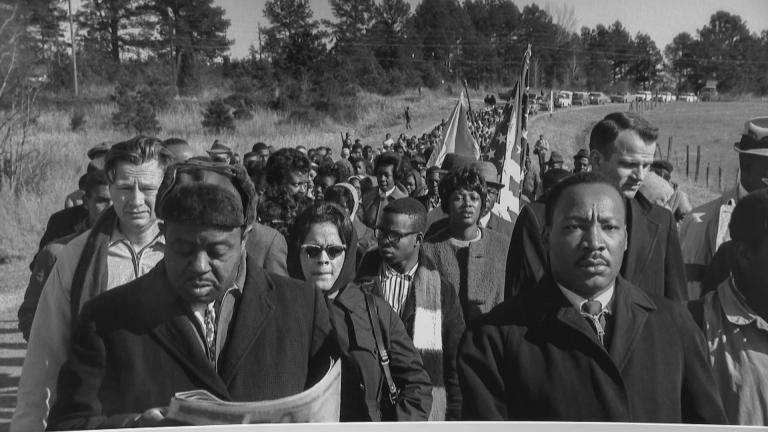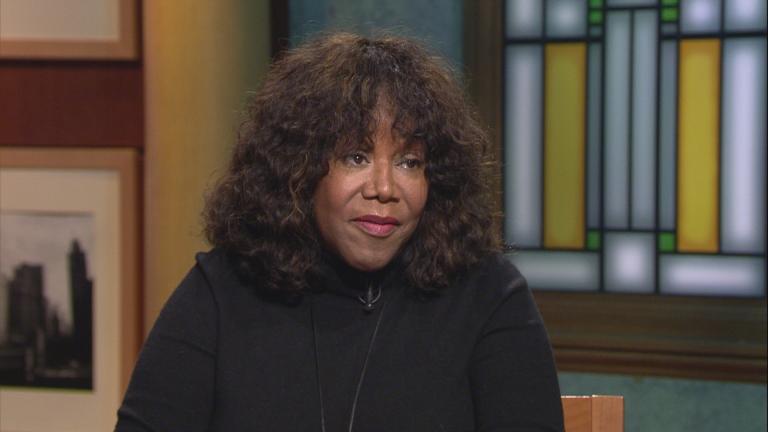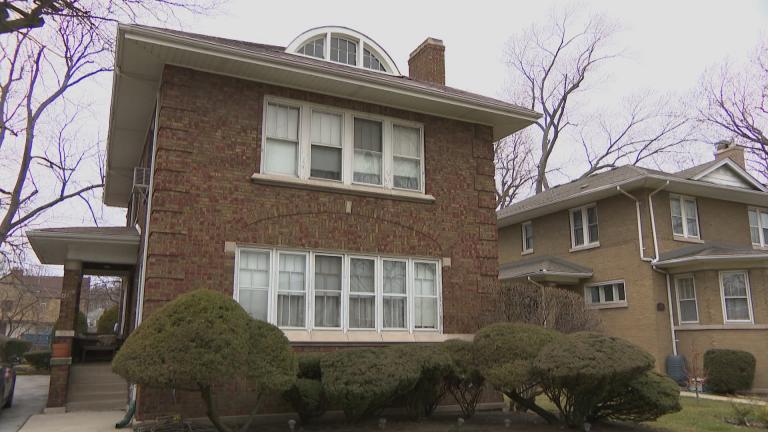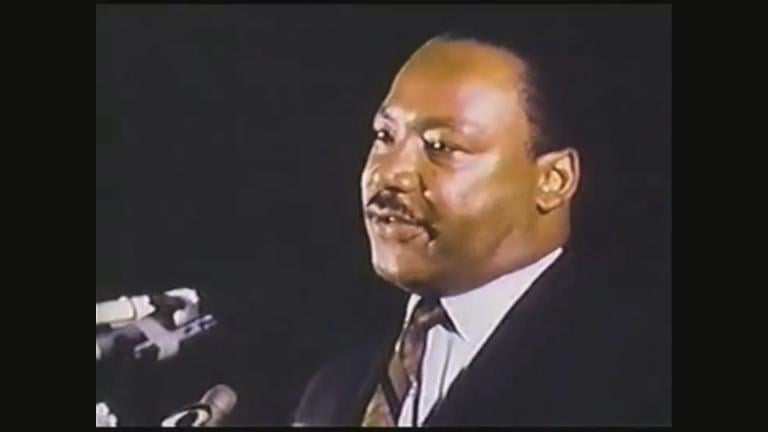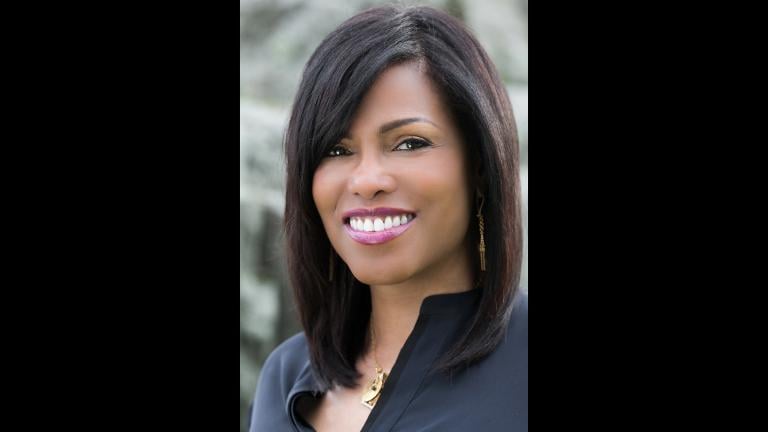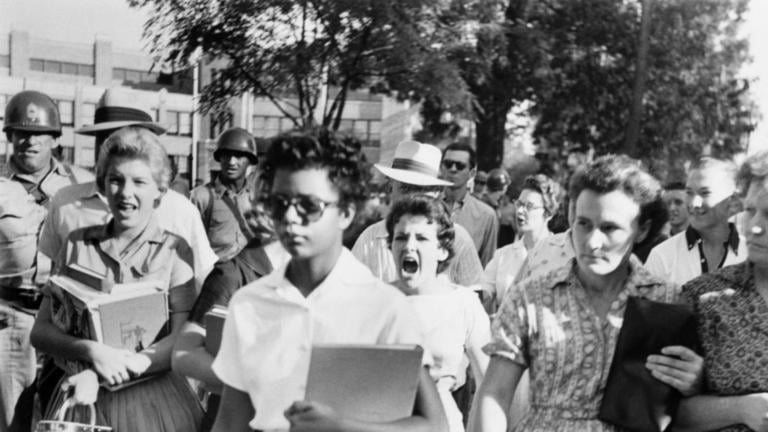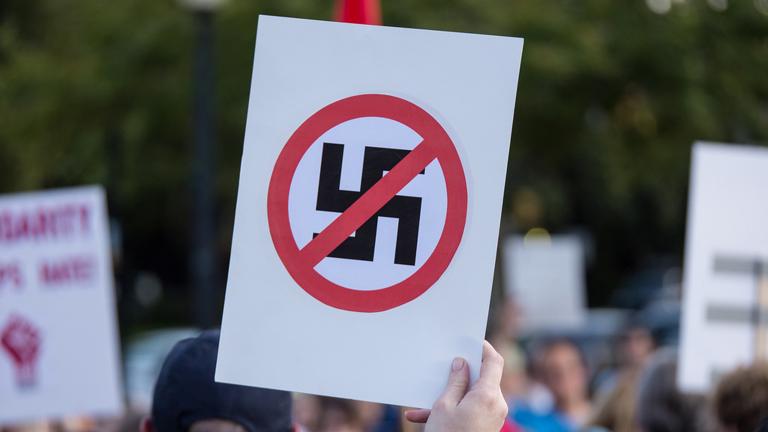Young adults have filled streets across the country on a scale not seen since the 1960s to protest for racial justice after the death of George Floyd. But whether that energy translates to increased turnout in November is another question.
Civil Rights
Philonise Floyd challenged Congress to “stop the pain” as lawmakers consider a sweeping law enforcement overhaul, so his brother George won’t be just “another name” on a growing list of black Americans killed during interactions with police.
When it comes to the relationship between Chicago’s residents of color and the police and political leaders who are supposed to serve them, the city has a long, complex and deeply painful history.
Imagine being so close to Martin Luther King Jr. as he gives one of the world’s most famous speeches that you notice the creases in his face and then realize the late civil rights leader is looking you square in the eye.
Martin Luther King Jr. was known for speaking out against racial segregation, voter disenfranchisement and economic inequality. We discuss his life and legacy with a man who marched with him: Paul Adams III.
At a time of Jim Crow laws, how did a black man compete to become the fastest athlete of his time? A new book by Michael Kranish tells the story a trailblazing cyclist and his connection to Chicago.
In a 1967 speech, Dr. Martin Luther King Jr. said the Underground Railroad “symbolized hope when freedom was almost an impossible dream.” Chicago photographer Dawoud Bey talks about his new exhibition, “Night Coming Tenderly, Black.”
We speak with Terrence Roberts, a surviving member of the Little Rock Nine, about teaching students to promote equality in their communities.
A pair of new photography exhibitions offer a side of celebrity but focus on one man’s view of the struggle for civil rights.
The professor and political analyst joins us to discuss his new book “What Truth Sounds Like: Robert F. Kennedy, James Baldwin, and Our Unfinished Conversation About Race in America.”
The first black student to attend an all-white New Orleans school joins us to talk about civil rights activism and persistent racism in the U.S.
The Fair Housing Act of 1968 promised equal access to the housing market for African-Americans. But 50 years later, some say the landmark legislation didn’t go far enough.
It is a moment seared in the memories of so many Americans: the day in 1968 they learned that Martin Luther King Jr. had been assassinated. The Rev. Jesse Jackson was there, and he shares his memories with Chicago Tonight.
To many, the legacy of activist Malcolm X is that of a fiery counterpart to the pacifist Martin Luther King, Jr. But to one of his daughters, that analysis overlooks his complexities and contributions to the fight for human rights.
Sixty years ago, on Sept. 25, 1957, nine courageous African-American teenagers changed history. We revisit our 2015 interview with the Little Rock Nine.
A group cited for its efforts to thwart white supremacists has plans to counter Islamist extremists. But after the Trump administration revoked a $400,000 grant to Life After Hate, those plans may be on hold.

